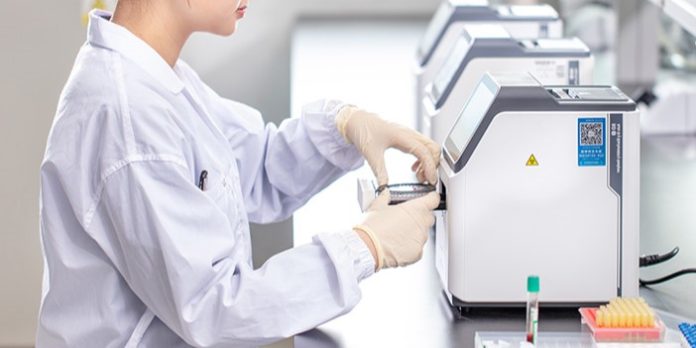Scientists have been working hard to develop new lab-grade analytical devices that will make your job easier and more productive. These advanced technologies are not only improving the accuracy of results, but they’re also reducing time spent on routine analysis for scientists at all levels in their field! We’ll explore some innovations like these which can change how you perform experiments by making them quicker or automate tedious tasks so it’s just about perfect every single time – without any hassle whatsoever!
What is a Dry Biochemistry Analyzer?
A dry biochemistry analyzer is a lab equipment that is capable of performing many different types of biochemical assays. Such assays are used to test the levels of various metabolites in a solution. A dry biochemistry analyzer allows you to test for levels of glucose, urea, creatinine, cholesterol, bilirubin, and more in order to determine a patient’s renal status, cystatin B levels in order to determine liver state, cortisol levels in order to determine adrenal function, and more. The dry biochemistry analyzer can also perform other types of analyses such as serology, microbiology, and hematology. Such assays are special types of biochemical tests because they do not require the use of a sample with a blood component. Instead, the samples that are analyzed in these assays are liquid substances.
How Does a Dry Biochemistry Analyzer Work?
Each dry biochemistry analyzer operates by passing a sample of the substance to be analyzed through a series of columns that remove the sample’s water content. The columns are then filled with a reagent that reacts with any components in the sample that have a specific chemical reaction with it. When the reagent has reacted with all its sample components, it passes the resulting substance through a detector. The detector reads the data and sends the result to a computer that processes the information and displays the results on a screen.
Benefits of a Dry Biochemistry Analyzer
- Improved Accuracy – The dry biochemistry analyzer offers many advantages over wet-based systems in terms of accuracy. The most important of these advantages is that the dry reagent and detector processes do not alter the sample.
- Increased Ease of Use – The dry biochemistry analyzer’s process does not require disrupting samples with any liquid reagents, which makes the process much more convenient compared with wet-based systems.
- Less Risk of Contamination – Wet biochemistry analyzers are used in a lab environment that is full of bacteria and other microorganisms. If contaminated samples get into the system, they can cause false readings that can lead to serious mistakes.
- Reduced Cost of Operation – The dry biochemistry analyzer uses less power and water compared with wet-based systems, which helps to reduce the cost of operation.
Conclusion
The dry biochemistry analyzer is one of the most advanced pieces of lab equipment on the market today. It offers many benefits over traditional wet-based systems, such as improved accuracy and efficiency. In this blog post, we will discuss the features of the dry biochemistry analyzer and how it can benefit your business.














